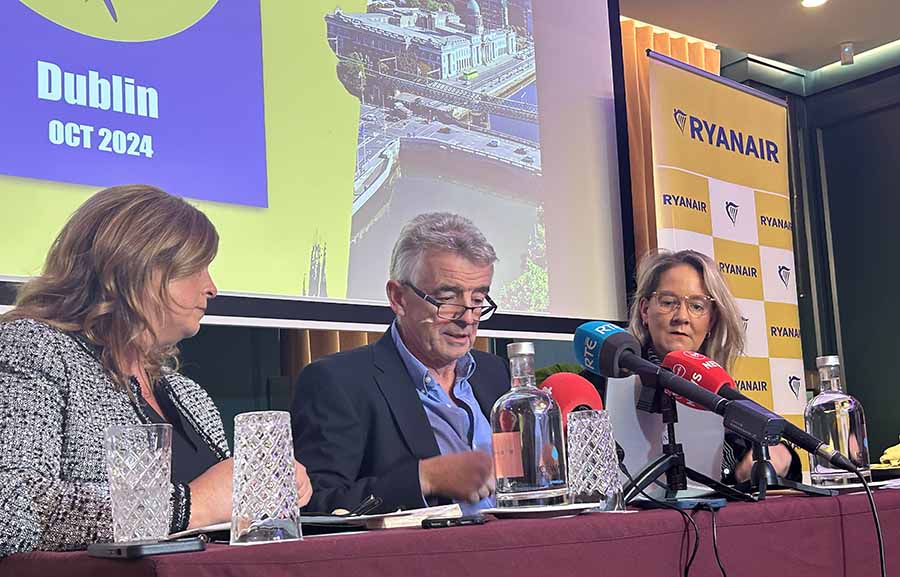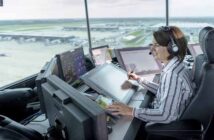
Ryanair CEO Michael O’Leary says that aircraft delays are a factor in disruptive passenger behaviour on flights this summer, which have been exacerbated by air traffic control (ATC) delays, which rose from 9pc to 24pc of flights.
He proposes limiting alcohol consumption at airports to two drinks per person, similar to existing duty-free rules, to promote moderation and reduce incidents of misbehavior.
Although most passengers behave well, he notes a troubling trend of overindulgence, particularly on flights to party destinations, resulting in increased diversions and challenges for cabin crews.
O’Leary calls for regulatory changes to close airport bars earlier, aiming for a safer environment for passengers and flight crews, and emphasizes the need for effective strategies to address disruptive behaviour.
Mr O’Leary said: the big problem all airlines are struggling with at the moment is we have a significant rise in disruptive behaviour by passengers on board aircraft. A lot of it is associated with—we’ve had all the airlines suffer huge ATC delays this summer. ATC is short-staffed. We had 9pc of our flights delayed due to ATC in summer 2023; this year, 24pc of our flights were delayed by ATC. There will always be exceptions, but we just need to throttle back a little bit on the amount of drinking that’s going on.
When flights run late, particularly on the first wave, there are people in the bars at the airports chugging drinks. And all we’ve said is, look, we don’t want to limit anybody’s drink consumption, but can you just limit yourself to two drinks at the airport? We already limit duty-free sales at the airport; you have to show your boarding pass, and we think we should do the same thing with alcoholic drinks. If you want more than two drinks, show your boarding pass; stamp them. You’ve had too many.
On flights to Ibiza, we now search everybody’s bag as they get on board the aircraft. We remove bottles of water, which tend to be full of vodka. There isn’t much more we can do as an airline when the challenges, particularly this summer, have been that flight delays have caused people to consume too much alcohol at airports.
We don’t want to ban alcohol at airports, but can we just have a little bit of moderation so that everybody can have a pleasant experience on board? It’s particularly important for our crews. When we consider our crews being assaulted—there was one incident where a passenger came back into Stansted last weekend, arriving on our flight, and tried to open the overwing exit while full of drink. He was restrained by crews and passengers, but our crew shouldn’t have to deal with that kind of misbehavior on board.
They do have to deal with it in an increasing number of cases, and it does need to be tackled. The Department of Justice is great for wringing its hands and taking action, but we don’t see much action. Why, for example, at airports, don’t you close the bars until 11 or 12:00 in the morning?
I, personally, by the way—and I’m very fond of a drink—I don’t understand why the bars at airports are open at 7 o’clock in the morning. I mean, we have licensing laws; you don’t open the normal pubs here at 11 or 12:00. Why are the pubs open at 7:00 a.m. or 5:00 a.m. in the morning? There’s cans of Guinness at 5:00 in the morning; it’s not a big ask.
It was put back to me, “Ah, well, why don’t you limit on board?” Look, we’d happily limit to two drinks on board our aircraft. It would cost us money—not much. Our average flight time duration is 1 hour and 15 minutes. Very few people buy or consume more than two alcoholic drinks in that time. If they’re misbehaving on board our flights, our cabin crew don’t serve them anyway.
The vast majority—98pc of people—have no problem. They have one or two drinks, and there’s no issue. But for the people who overindulge, and particularly on routes to the party islands, some of the Greek islands, and some of the Balearic Islands, it does get out of control. Our crews are very well trained, and they deal with it well, but they can’t control everybody. We, along with all the other airlines, would confirm we’ve had a big spike upwards in diversions for offloaded passengers due to disruptive behaviour.
This is a question we should be dealing with. If it costs us some money on inflight sales, I mean, my view of life, by the way, is if they can’t have more than two alcoholic drinks, then they’ll have a cup of tea or they’ll have a soft drink or water.
Everybody has a lot of questions like, “Why don’t you just stop them from flying?” But we don’t know—you know, when we see them in the boarding queue, they can shuffle on unless they’re completely falling over, in which case we take them off. Banning passengers is completely ineffective because you can book the next time, just change your name a little bit, put in a fake passport number, and you get through.
We hope they book another airline; sadly, they don’t. They tend to come back with us again. So we do everything we can. Typically, how many people do we ban in a month? It varies. During the summertime, the numbers are larger because people traveling to party destinations are full of the joys of life—unfortunately, it goes wrong.
On average, we certainly have a number of passengers every week that would fall into that category, which is really regrettable. We have one-year bans and five-year bans, but frankly, they’re all completely ineffective.
Ryanair safety officer Carol Sharkey said: While we can’t limit alcohol consumption at the airport, we can—and our crews do—very effectively manage alcohol consumption on board. Typically, what we see are people who manage to get to the airplane, hold it together, get on board, the doors close, the airplane takes off, and then the alcohol hits. For us, that’s a concern.
Ireland has issued the Irish Aviation Authority, the Department of Transport, and ourselves, along with many of the stakeholders and MROR as well, as co-signatories to a manifesto against unruly passenger behaviour on board aircraft. We have huge support from an Garda Siochána in trying to bring these individuals to justice, and we work very closely with them. But I think it’s an area that we need to focus on as an industry and as a society to try to stop this behaviour.




